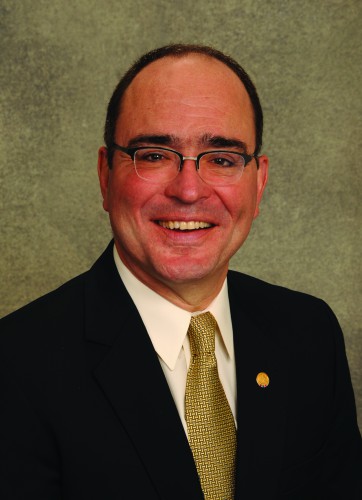Health care costs
Q&A with Jeffrey Cain, MD, CMS representative to the Colorado Commission on Affordable Health Care
by Kate Alfano, CMS Communications Coordinator

Jeffrey J. Cain, MD, FAAFP, is a family physician in Denver and past president of the American Academy of Family Physicians. He is representing the Colorado Medical Society on the Commission on Affordable Health Care, which has been directed by the Colorado General Assembly to work over the next three years to identify systemic and other underlying causes of excessive and unnecessary health care costs and to propose specific legislative, regulatory and market-based strategies to reduce costs and improve quality. Colorado Medicine staff spoke with Cain for an update on the commission’s activities. For more information and to view minutes and other materials from their meetings, go to www.colorado.gov/pacific/cdphe/CCAHC.
Colorado Medicine (CM): What is the Colorado Commission on Affordable Health Care charged to do?
Jeffrey Cain, MD (JC): Colorado’s health care costs have been escalating, just like the rest of the nation. Right now one-sixth of our country’s GDP is spent on health care and is continuing to expand in a way that’s crowding our ability to invest in other services in Colorado and around the country. It affects families, it affects businesses and it affects the fiscal health of our state and country. Lawmakers created the commission to study the fundamental drivers of health care costs and to make recommendations so everyone in Colorado can have access to affordable, high-quality health care. Our recommendations will go to the governor’s office, the legislature and to Colorado’s health care business infrastructure. That’s what our charge is, to look at health care expenses to understand the drivers of health care costs and quality, explore possible solutions, and make recommendations to help Colorado confront the rising costs.
CM: What progress has the commission made so far?
JC: The work of the commission will occur over three years. We are spending the first year focusing on examining the drivers of costs in Colorado. The commission has created a process to look at statewide cost data and to evaluate research on health care costs. This summer we will be meeting in all nine congressional districts to get local stakeholder input. Our goal this year is to prepare a report to the legislature by November 2015 on what we find are the major drivers of health care costs in Colorado.
CM: Why is the work of the commission important to physicians?
JC: No. 1, because it affects everything that we do in our office! No. 2, they say the most expensive tool in all of health care is the physician’s pad. In this day and age, I’d say the most expensive tool in all of health care is the electronic health record. No. 3, physicians have a trusted voice; we’re the ones actually sitting down with our patients and taking care of them. Our voice is respected because of that patient-focused perspective that we bring to the discussion.
CM: Are these discussions opening up opportunities for organized medicine? Vulnerabilities?
JC: I think the opportunities are being able to step up and talk about what’s important to our practices and to our patients. Our voice is sought after, so it’s common for the commission to turn and ask about the physicians’ perspective. The biggest vulnerability is to have decisions made without the voice of physicians. How can you have a conversation about health care and come up with solutions to the challenges without understanding what really happens in the doctor’s office?
CM: What should organized medicine be working on during the course of the commission’s work and after?
JC: CMS has formed the Task Force on Health Care Costs and Quality that is looking at the very issues that will help inform the process of the cost commission. As your representative, I am actively engaged in that group and encouraging Colorado physicians to engage with the task force to help CMS and the commission better understand the cost drivers for them and the small hassles that happen in physicians’ offices that get in the way of efficiencies.
CMS must be proactive in helping the commission better understand cost and quality from a physician’s perspective to provide solutions that work for physicians and for patients. The commission will receive input from other stakeholders – from insurance companies, from hospitals, from employers – and the cost commission needs to be able to hear how the solutions will impact our ability to care for patients.
CM: Are you hopeful for the work of the commission? Do you see potential for change?
JC: I am an optimist. We have solutions in Colorado that show that more effective, more coordinated care can actually produce health care that is higher quality, lower cost and a better experience for patients. That’s the triple aim. And I believe it’s possible to find a solution that also makes practicing medicine more engaging and rewarding for physicians. That’s the quadruple aim. Physicians need to be engaged, both in this process and the legislature, because we can help improve our health care system for better outcomes for our patients and for our practices.
Posted in: Colorado Medicine | Practice Evolution | Transparency | Health System Reform

Comments
Please sign in to view or post comments.